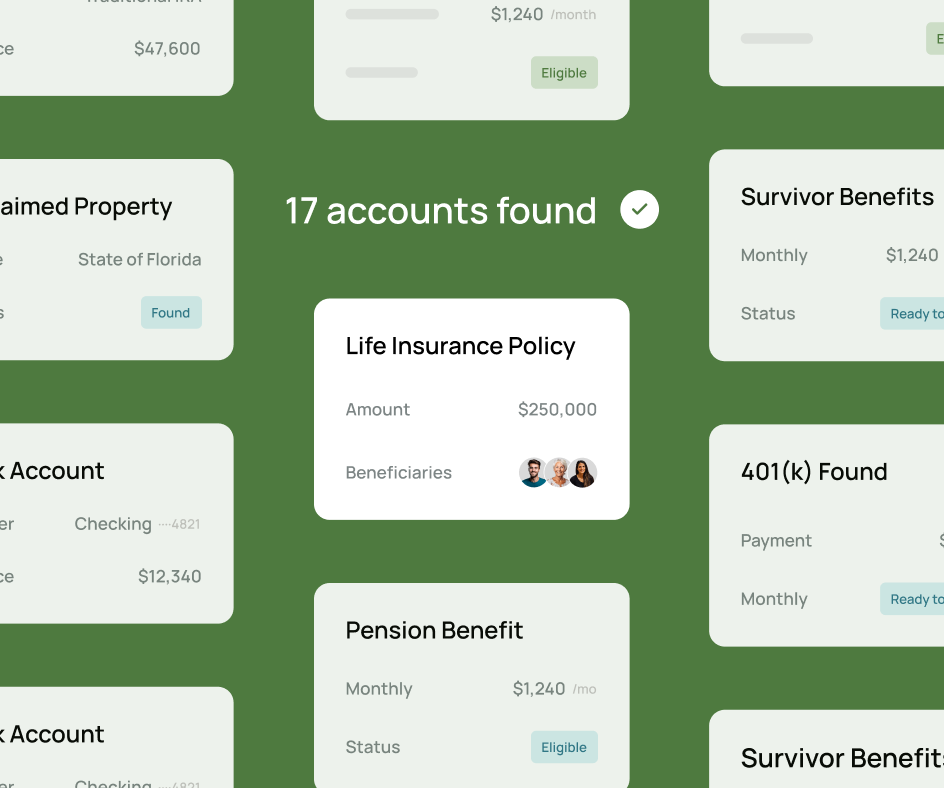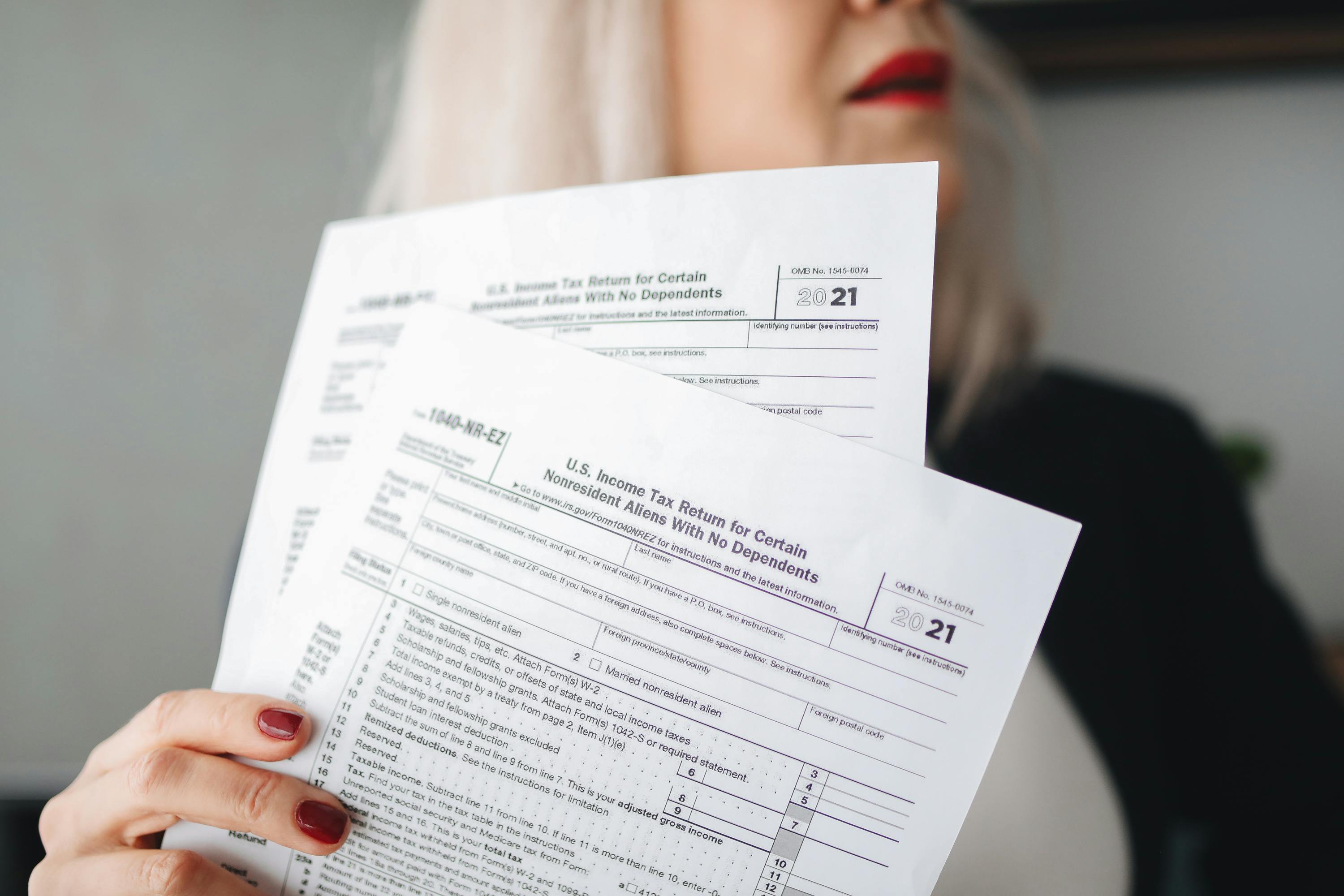Key Takeaways
- Keep the deceased’s tax returns for at least 3 to 7 years after the final return is filed.
- Some situations, like unreported income or estate audits, may require keeping records longer.
- Organized recordkeeping protects beneficiaries and executors from future legal or tax complications.
{{blog-cta-financial}}
After someone dies, families and executors often wonder: how long do you need to keep tax records for a deceased person? It’s a common question—and an important one. Holding onto the right paperwork helps protect against IRS audits, legal complications, and delays in settling the estate.
When managing a loved one’s estate, it’s easy to feel overwhelmed by the paperwork—final tax filings, estate documents, property records, and investment statements. But keeping these records for the right amount of time is crucial. If you have authority to act, this guide explains how long to keep a deceased person’s tax returns, which records matter most, and when it’s finally safe to let them go.
Why You Need to Keep Tax Records After Death
When someone dies, their financial affairs don’t end immediately. Executors, trustees, or family members are often responsible for filing final tax returns, managing assets, and ensuring all debts and taxes are paid. Keeping tax records after death serves several important purposes:
- IRS Verification and Audits: The IRS can audit returns for several years after filing. Having access to prior returns and documentation helps ensure you can respond quickly to any inquiries.
- Estate and Legal Requirements: Estate taxes, inheritance disputes, and property transfers may all rely on historical financial data. Losing these records could delay estate closure or create legal risks.
- Protection for Family and Executors: Executors are personally responsible for properly managing estate funds. Keeping thorough records demonstrates good faith and helps avoid penalties or claims of mismanagement.
Simply put, maintaining organized financial and tax records after death provides a safety net against future issues, especially when multiple beneficiaries or large assets are involved.
How Long to Keep Tax Returns After a Death
The general rule is to keep the deceased’s tax returns for at least three to seven years after filing the final return. However, certain situations may extend that timeline:
- Three Years: The IRS typically has three years to audit a return after it’s filed. If everything was reported correctly and the estate is straightforward, keeping returns for this period may be sufficient.
- Seven Years: If the estate includes large deductions, complex investments, or bad debt claims, keep all supporting documents and returns for at least seven years. This extended window helps protect against any potential disputes or audits.
- Indefinitely: Some records should never be destroyed. Keep these permanently:
- Estate tax returns (Form 706).
- Records for major assets like property deeds, business ownership, or stock purchases and sales.
- Documents tied to suspected fraud or unreported income.
If you’re unsure which category applies, err on the side of caution. It’s always easier to discard old records later than to recover missing ones when they’re needed.
What Financial and Tax Records to Keep
When sorting through a deceased person’s paperwork, it helps to know which documents are most important. Here’s a list of essential records to retain:
- Federal and State Tax Returns: Keep both the returns and all schedules attached.
- W-2s, 1099s, and Deduction Documentation: These support income and expense claims on filed returns.
- Proof of Property Purchases and Sales: Deeds, settlement statements, and improvement receipts help determine capital gains or inheritance value.
- Investment and Retirement Account Statements: These are essential for tracking cost basis, distributions, and estate valuation.
- Final Estate Tax Return (if applicable): This shows how the estate was valued and distributed—key for future reference or managing disputes.
Storing these records helps ensure you have what you need for taxes, probate, and any future legal questions about the estate.
How to Store a Loved One’s Tax Records Safely
Paper can deteriorate, and digital files can get lost without backups. Some best practices to consider:
- Secure Physical Storage: Keep paper records in labeled folders inside a waterproof and fireproof safe, or a locked cabinet in a dry environment.
- Digital Backups: Scan key documents and store them on a secure, encrypted drive or cloud service. Digital files are easier to search and share if needed by accountants or attorneys.
- Track Expiration Dates: Create a spreadsheet or checklist that notes when each year’s tax records can be safely destroyed. Schedule a review every few years to keep files organized and up to date.
Maintaining both physical and digital copies gives you flexibility—and peace of mind—should anything be needed in the future.
Conclusion
Knowing how long to keep tax returns after death is one of the many details that can ease stress during estate administration. The general rule is to keep records for 3 to 7 years, but estate documents, property records, and major asset files may need to be retained indefinitely. When in doubt, it’s safer to keep too much than too little, especially where the IRS is concerned. Organized, well-preserved records can prevent costly mistakes and help the estate settle more efficiently.
For help managing estate paperwork, visit Elayne’s Automated Estate Settlements platform to simplify the process and help ensure nothing gets overlooked.
{{blog-cta-financial}}
FAQs
Q: How long should you keep financial records for a deceased person?
Keep most financial documents for 3 to 7 years, and longer for property records or anything connected to taxes or estate value.
Q: How long should you keep old tax returns?
Hold onto tax returns for at least 7 years, especially if they support deductions or are tied to major assets or estate filings.
Q: What records should be kept for 7 years?
Tax returns, W-2s, 1099s, charitable donation receipts, and anything related to capital gains, losses, or estate distributions should be retained for seven years.
Q: What do you do with a deceased person's tax return?
File their final tax return and keep it—along with several prior years’ returns—for at least 3 to 7 years, or longer if there’s an estate audit or property involved.
*Disclaimer: This article is for informational purposes only and does not provide legal, medical, financial, or tax advice. Please consult with a licensed professional to address your specific situation.












































